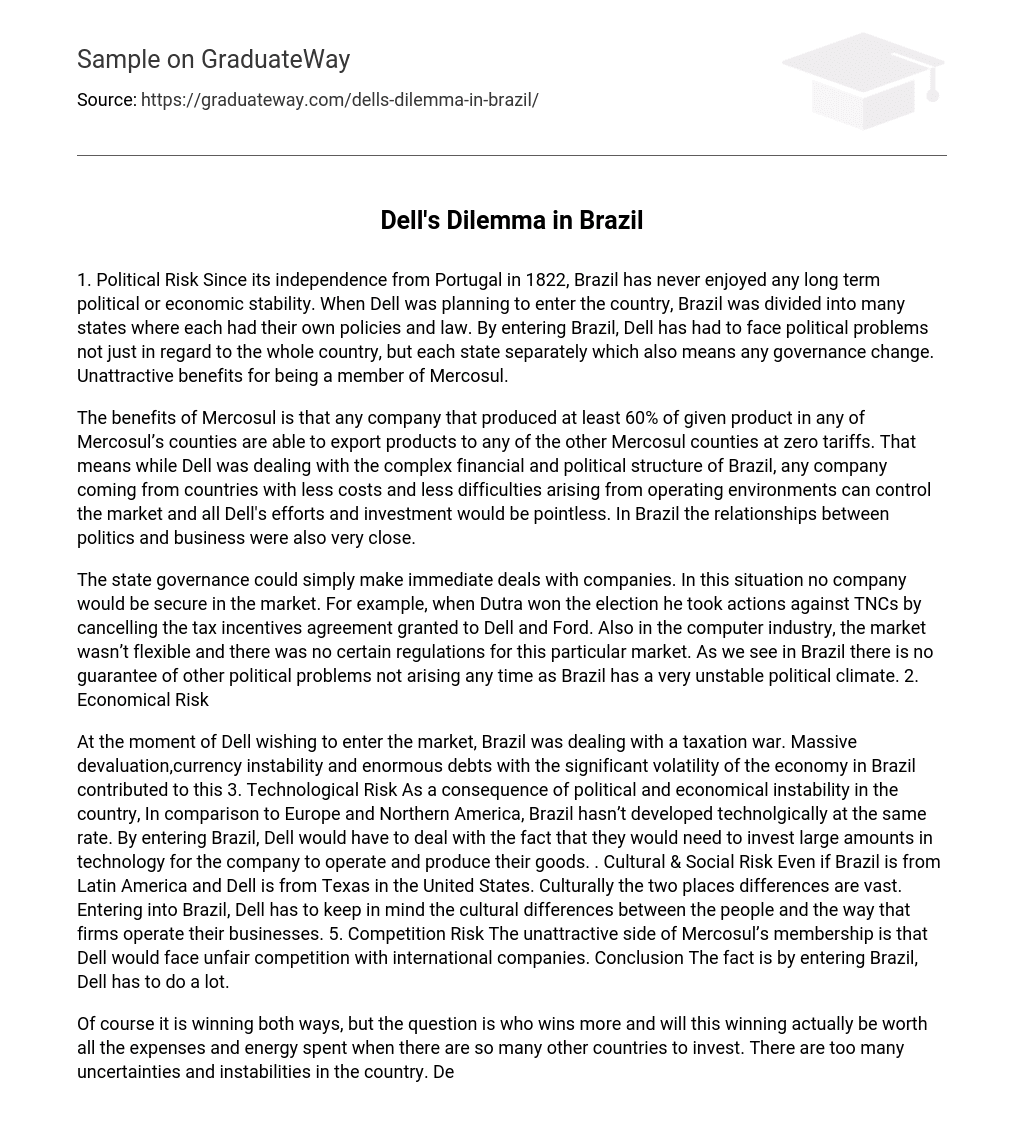1. Political Risk Since its independence from Portugal in 1822, Brazil has never enjoyed any long term political or economic stability. When Dell was planning to enter the country, Brazil was divided into many states where each had their own policies and law. By entering Brazil, Dell has had to face political problems not just in regard to the whole country, but each state separately which also means any governance change. Unattractive benefits for being a member of Mercosul.
The benefits of Mercosul is that any company that produced at least 60% of given product in any of Mercosul’s counties are able to export products to any of the other Mercosul counties at zero tariffs. That means while Dell was dealing with the complex financial and political structure of Brazil, any company coming from countries with less costs and less difficulties arising from operating environments can control the market and all Dell’s efforts and investment would be pointless. In Brazil the relationships between politics and business were also very close.
The state governance could simply make immediate deals with companies. In this situation no company would be secure in the market. For example, when Dutra won the election he took actions against TNCs by cancelling the tax incentives agreement granted to Dell and Ford. Also in the computer industry, the market wasn’t flexible and there was no certain regulations for this particular market. As we see in Brazil there is no guarantee of other political problems not arising any time as Brazil has a very unstable political climate. 2. Economical Risk
At the moment of Dell wishing to enter the market, Brazil was dealing with a taxation war. Massive devaluation,currency instability and enormous debts with the significant volatility of the economy in Brazil contributed to this 3. Technological Risk As a consequence of political and economical instability in the country, In comparison to Europe and Northern America, Brazil hasn’t developed technolgically at the same rate. By entering Brazil, Dell would have to deal with the fact that they would need to invest large amounts in technology for the company to operate and produce their goods. . Cultural & Social Risk Even if Brazil is from Latin America and Dell is from Texas in the United States. Culturally the two places differences are vast. Entering into Brazil, Dell has to keep in mind the cultural differences between the people and the way that firms operate their businesses. 5. Competition Risk The unattractive side of Mercosul’s membership is that Dell would face unfair competition with international companies. Conclusion The fact is by entering Brazil, Dell has to do a lot.
Of course it is winning both ways, but the question is who wins more and will this winning actually be worth all the expenses and energy spent when there are so many other countries to invest. There are too many uncertainties and instabilities in the country. Dell would be risking a huge amount of money and sources with no guarantee. There also is a strong possibility of the government to keep having new elections whilst making changes in the laws and regulations. As an example we can show Rio Grande do Sul.
Of course there might be some other big companies such as Gerdau, Ipiraga and Coca-cola, who have entered and successfully continued their operations in this market. However, we cannot not consider these facts, though on the other hand it is a different field of industry in which these companies operate. As Dell’s initial investment hasn’t made anything yet, they also haven’t had any financial loss. The best option for Dell is to leave Brazil before any risky movements.





